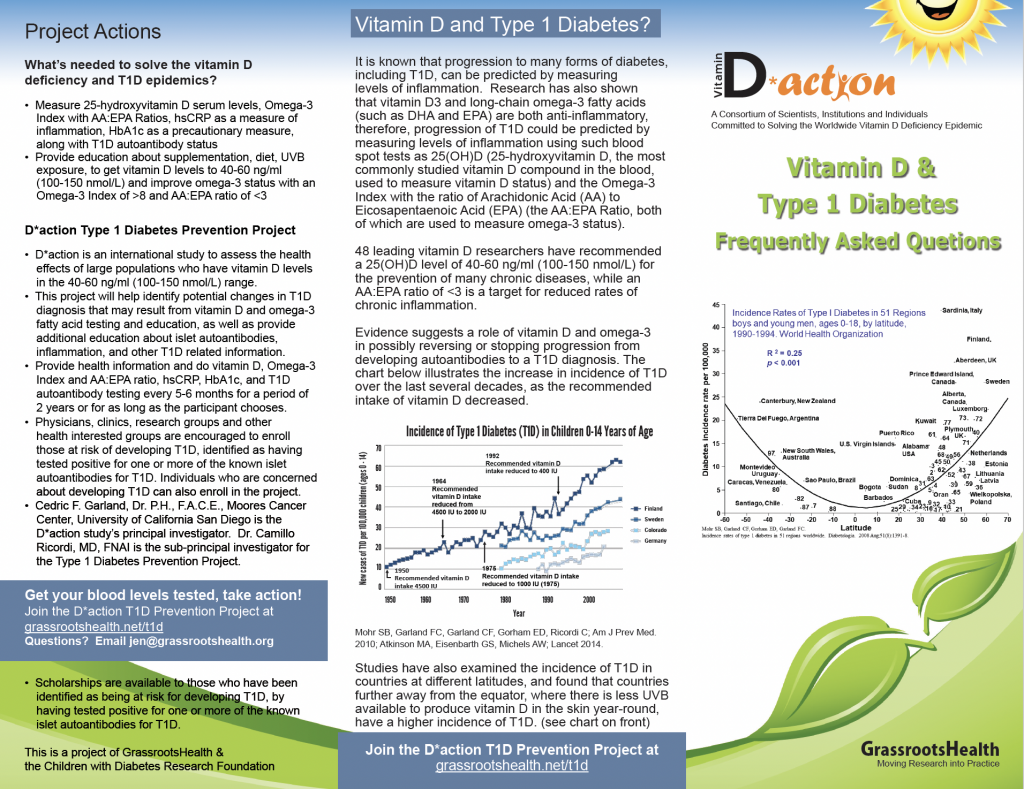Could the progression to a type 1 diabetes diagnosis among those at risk be stopped or delayed by implementing a protocol utilizing vitamin D and omega-3 supplementation, testing, and education?
Help us find the answer! We have success stories demonstrating how this protocol has worked for others. This project has as its goal to publish the protocol and findings in a scientific journal to make it more official and accepted among the scientific and medical community.
It is known that progression to many forms of diabetes, including T1D, can be predicted by measuring levels of inflammation. Research has also shown that vitamin D3 and long-chain omega-3 fatty acids (such as DHA and EPA) are both anti-inflammatory, therefore, progression of T1D could be predicted by measuring levels of inflammation using such blood spot tests as 25(OH)D (25-hydroxyvitamin D, the most commonly studied vitamin D compound in the blood, used to measure vitamin D status) and the Omega-3 Index with the ratio of Arachidonic Acid (AA) to Eicosapentaenoic Acid (EPA) (the AA:EPA Ratio, both of which are used to measure omega-3 status).
This FAQ brochure gives a detailed overview of how vitamin D (and omega-3s) can affect T1D progression, along with general information about vitamin D.

We are currently enrolling individuals who have tested positive for one or more of the Type 1 Diabetes (T1D) autoantibodies and who are not yet diagnosed with T1D. Download, read and share the project FAQ and enrollment brochure here to learn more about the project and the benefits and to give to those who might be interested in joining.
